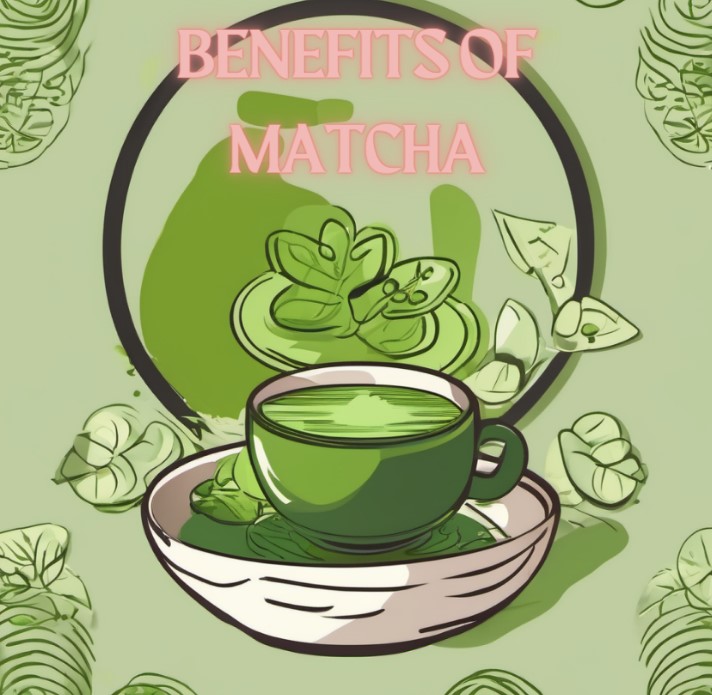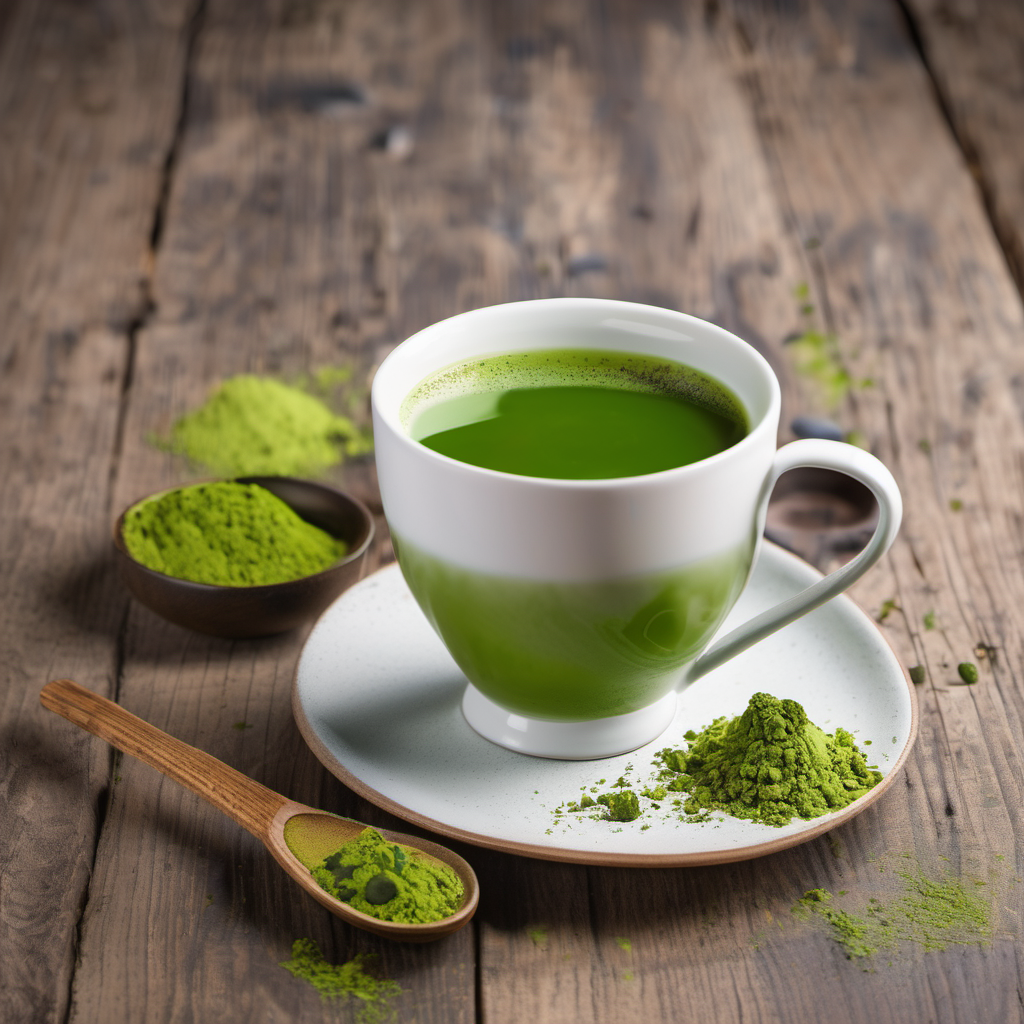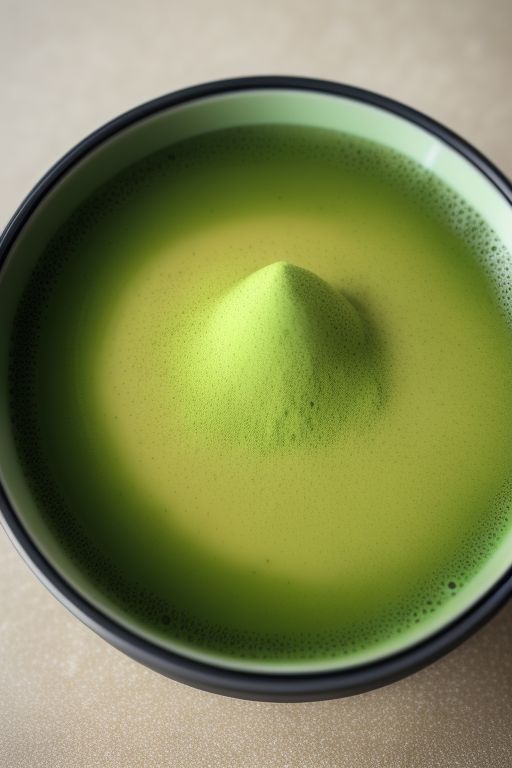Benefits of Matcha: Power of Green Tea
One such superfood that has gained popularity for its many health benefits is matcha. Derived from the Camellia sinensis plant, the same as green tea, matcha is a finely ground powder made from shade-grown tea leaves. Unlike traditional green tea, where the leaves are brewed and then discarded, in the case of matcha, the entire leaf is used, providing a concentrated source of nutrients and antioxidants.
What is matcha tea?
Matcha has been an integral part of Japanese culture for centuries, revered for its rich flavor and vibrant green color. Traditionally used in tea ceremonies, matcha is now enjoyed worldwide in various culinary creations, beverages, and even beauty products.
The origins of matcha can be traced back to ancient China, where it was used by Buddhist monks to enhance meditation practices. Later, matcha was brought to Japan by Zen Buddhist monks, who cultivated the art of matcha preparation and incorporated it into their rituals.
What are the benefits of matcha? Nutritional Profile
- Antioxidant content. One of the most notable benefits of matcha is its high antioxidant content, particularly catechins, which help fight oxidative stress and reduce the risk of chronic diseases.
- Vitamins and minerals. Matcha is also rich in vitamins A, C, and E, as well as minerals such as potassium, calcium, and iron, all of which play essential roles in maintaining overall health.
- Amino acids. Matcha contains L-theanine, an amino acid that promotes relaxation and mental clarity, along with a small amount of caffeine, which provides a gentle energy boost without the jittery effects often associated with coffee.
Health Benefits
- Boosts metabolism and burns calories. Studies have shown that matcha can increase metabolism and promote fat oxidation, making it a valuable tool for weight management.
- Enhances concentration and improves mood. The combination of L-theanine and caffeine in matcha provides a sustained energy boost, helping to enhance focus and concentration while also promoting a sense of calm and well-being.
- Detoxifies the body and supports immune health. Matcha is rich in chlorophyll, a natural detoxifier that helps eliminate toxins from the body and supports immune function, keeping you feeling healthy and energized.
Sustainable energy without jitters
The combination of caffeine and L-theanine in matcha promotes a state of relaxed alertness, providing a steady stream of energy without the peaks and crashes associated with other caffeinated beverages.
Cancer Prevention
- Antioxidants and cancer-fighting properties. The high levels of antioxidants in matcha have been linked to a reduced risk of certain types of cancer, including breast, prostate, and colorectal cancer, making it a valuable addition to a cancer-preventive diet.
- Studies and research supporting the claim. Numerous studies have highlighted the potential anti-cancer properties of matcha, with researchers attributing its protective effects to its high antioxidant content and ability to inhibit the growth of cancer cells.
Heart Health
- Lowers cholesterol and blood pressure. Regular consumption of matcha has been shown to lower levels of LDL cholesterol and triglycerides, as well as reduce blood pressure, thus lowering the risk of heart disease and stroke.
- Reduces the risk of cardiovascular diseases. The antioxidants in matcha help protect the heart and blood vessels from damage caused by free radicals, reducing inflammation and promoting overall cardiovascular health.
Weight Loss Aid
- Increases fat oxidation during exercise. Studies have found that consuming matcha before exercise can increase fat oxidation by up to 17%, making it an effective aid for weight loss and fat burning.
- Suppresses appetite and aids in weight management. The combination of caffeine and L-theanine in matcha helps suppress appetite and cravings, making it easier to adhere to a healthy diet and maintain a healthy weight.
Skin Health
| Anti-inflammatory properties | Matcha contains antioxidants and anti-inflammatory compounds that safeguard the skin against UV radiation and environmental pollutants. This helps in minimizing inflammation and preventing premature aging. |
| Clearer complexion and reduced signs of aging | Consistent consumption of matcha contributes to a clearer complexion, diminishes the visibility of fine lines and wrinkles, and enhances the overall texture and tone of the skin. |
Stress Reduction
| Stress Reduction | L-theanine in Matcha: Matcha is abundant in L-theanine, an amino acid known for its calming effects, reducing stress and anxiety. This helps achieve a calm and focused state, especially during busy days. |
| Promotes Relaxation and Mental Clarity | Synergistic Blend: The combination of caffeine and L-theanine in matcha creates a synergistic effect. This promotes a balanced state of relaxed alertness and mental clarity, enhancing overall productivity and creativity. |
| How It Works | Formula for Stress Reduction: The calming effect is achieved through the rich L-theanine content in matcha. The synergistic blend of caffeine and L-theanine promotes relaxation and mental clarity, contributing to enhanced focus and creativity. |
Improves Digestion
- Rich in fiber and chlorophyll. Matcha tea is rich in dietary fiber, which helps promote regularity and prevent constipation, as well as chlorophyll, which supports healthy digestion and detoxification.
- Supports digestive health and alleviates bloating. The antioxidants and anti-inflammatory compounds in matcha help soothe the digestive tract and reduce inflammation, alleviating symptoms of bloating, gas, and indigestion.
Enhances Physical Performance
- Increases endurance and stamina.The caffeine in Japan green tea matcha helps increase endurance and stamina, allowing you to exercise for longer periods without fatigue, while the L-theanine promotes a sense of calm focus, enhancing overall athletic performance.
- Improves overall athletic performance. Studies have shown that consuming matcha before exercise can improve reaction time, agility, and endurance, making it a valuable tool for athletes and fitness enthusiasts alike.
Variety of Uses
| Culinary Applications | In addition to traditional tea ceremonies, matcha tea finds its way into a variety of culinary creations, such as smoothies, lattes, desserts, and savory dishes. It imparts a vibrant green color and a unique flavor profile to these dishes. |
| Beauty and Skincare Products | The antioxidant and anti-inflammatory properties of matcha make it a sought-after ingredient in beauty and skincare products, including masks, serums, and creams. It contributes to promoting healthy, glowing skin. |
| Sustainability and Ethical Production | Farming Practices: Matcha is typically cultivated in shaded environments, slowing the growth of tea plants and enhancing the production of chlorophyll and amino acids, resulting in a higher quality product. |
| Environmental Impact Compared to Coffee: In contrast to coffee production, often associated with deforestation and chemical pesticides, matcha tea cultivation is more environmentally sustainable, causing minimal impact on ecosystems. | |
| Potential Side Effects and Precautions | Caffeine Sensitivity: While matcha has less caffeine than coffee, some individuals may be sensitive to its effects, potentially leading to symptoms such as insomnia, anxiety, or heart palpitations. |
| Quality and Sourcing Concerns: To ensure the utmost quality and purity, selecting organic, ceremonial-grade matcha from reputable sources is crucial. Lower-quality varieties may contain contaminants or additives. |
Conclusion about benefits of matcha tea
The benefits of matcha are truly remarkable, ranging from improved energy and concentration to enhanced heart health and weight loss support. By incorporating matcha into your daily routine, you can experience a myriad of health benefits while enjoying its delicious flavor and versatility in various culinary creations
FAQs
Is matcha suitable for everyone?
Matcha is generally safe for most people when consumed in moderation. However, individuals with caffeine sensitivity or certain medical conditions should consult with a healthcare professional before adding matcha to their diet.
Can matcha help with weight loss?
Yes, matcha has been shown to increase fat oxidation and boost metabolism, making it a valuable aid for weight loss when combined with a healthy diet and regular exercise.
How much matcha should I consume per day?
The recommended daily intake of matcha varies depending on individual preferences and tolerance to caffeine. However, most experts suggest consuming no more than 1-2 servings (1-2 teaspoons) of matcha per day to reap its health benefits without experiencing side effects.
Is matcha better than green tea?
While both matcha and green tea come from the same plant, matcha is more concentrated in nutrients and antioxidants since it involves consuming the whole leaf. However, both beverages offer unique health benefits and can be enjoyed as part of a balanced diet.
Where can I buy high-quality matcha?
High-quality matcha can be found at specialty tea shops, health food stores, and online retailers. Look for organic, ceremonial-grade matcha from reputable sources to ensure the best taste and nutritional value.
Does green tea matcha have caffeine?
Yes, green tea matcha does contain caffeine. Matcha is a type of powdered green tea that is made from shade-grown tea leaves. During the shading process, the tea plant produces more chlorophyll and amino acids, which contribute to the unique flavor and vibrant green color of matcha. The caffeine content in matcha can vary depending on factors such as the type of tea plant, growing conditions, and processing methods.
Generally, matcha contains more caffeine than traditional steeped green tea because you consume the entire powdered tea leaf. However, the caffeine content in matcha is still lower than that of coffee. If you're sensitive to caffeine, it's essential to be mindful of your matcha consumption.
Author
Chiharu Nakazawa, Tea Expert / Show Business



Комментарии
Отправить комментарий